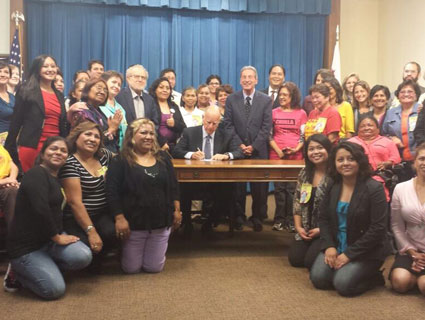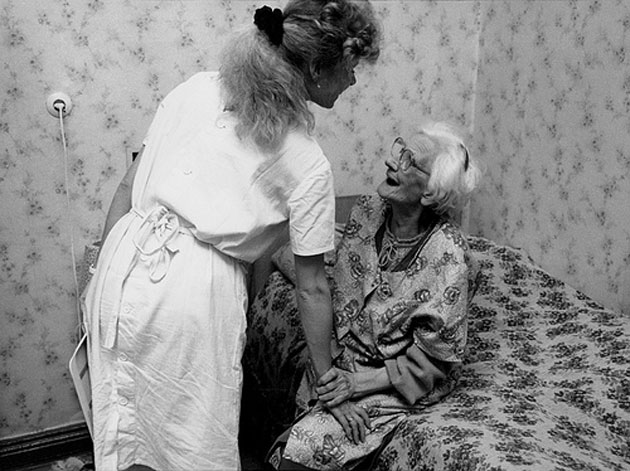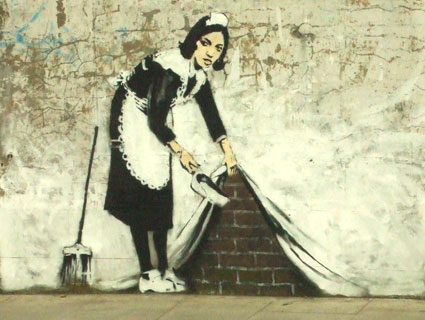
<a href="https://twitter.com/JerryBrownGov/status/383317335567659008/photo/1">Calif. Governor's Office</a>/Twitter
Gov. Jerry Brown signed into law the California Domestic Worker Bill of Rights yesterday, making California only the third state in the country to adopt such legislation. But despite its celebration as a policy victory by advocates, the law might more aptly be called the California Domestic Worker Bill of Right, after it was watered down to only include overtime protections.
The law now reads that a domestic work employee “shall not be employed more than nine hours in any workday or more than 45 hours in any workweek unless the employee receives one and one-half times the employee’s regular rate of pay” for all overtime hours worked. Hour protections are, without a doubt, an important gain for domestic workers, who “are prone to be overworked on a weekly and daily basis,” according to Sarah Leberstein, an attorney at the National Employment Law Project.
But lost in the legislative process were a number of protections, including:
- the right of live-in employees to eight hours of uninterrupted sleep;
- the right of live-in employees to “adequate, decent, and sanitary” sleeping accommodations;
- the right to meal and rest breaks;
- and the right to paid days of rest after one year of work with an employer.
(The signed bill also includes a sunset, stipulating that a committee reviews the bill before January 2017.)
Even though the California bill doesn’t measure up to, say, New York’s 2010 bill of rights—which provides paid days of rest and protections for domestic workers who suffer sexual or racial harassment—Leberstein argues that it is still an important symbolic win: “It shows that domestic workers are on a roll, that there’s growing recognition that this work is really crucial and absolutely needs the basic protections that other workers have. It shows that there’s momentum.”
Don’t get us wrong: Overtime pay is huge. It just doesn’t go far enough.
















